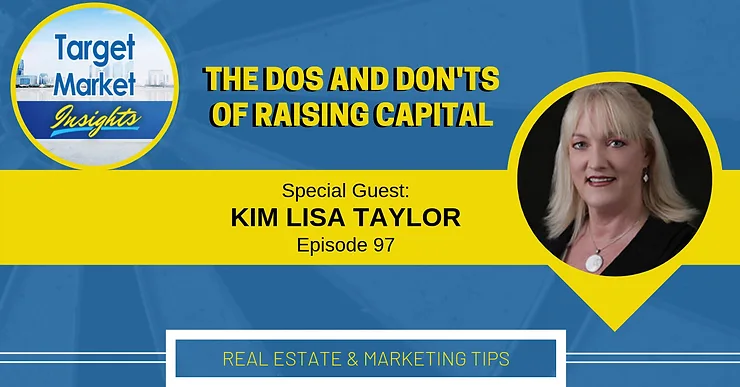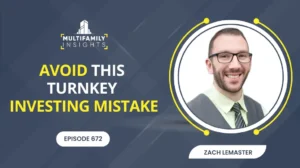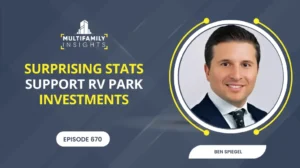The SEC has set forth clear guidelines of what is acceptable when raising capital for real estate. Nonetheless, some investors have made missteps that have exposed them to harsh punishments. To understand the dos and don’ts of raising capital, we sat down with securities attorney Kim Lisa Taylor. Kim is the founder of Syndication Attorneys whose sole purpose is to help entrepreneurs create sustainable, successful investment companies. On this episode, she clarifies the difference between a JV and a security, what constitutes a pre-existing relationship, and why you need to have a customer relationship marketing (CRM) system.
Partner: Get Your Early Bird Tickets to the Midwest Real Estate Networking Summit
Key Market Insights
Involved in writing over 300 private security offerings – mostly real estate
Securities come into play when borrowing money from a private investor
If it’s a one-time deal, there are not many risks with securities laws – especially if they are accredited investors
When doing it multiple times, you are a serial borrower
Can have someone in an LLC that is member managed and they are actively involved in generating a profit and not relying on you
Members of member managed LLCs should have access to the bank account and be involved in the decision-making
If filing as a JV Partnership: don’t have too many members, works best with 3-4 people max
Hire a security attorney after you have a signed sales agreement, visited the property, and reviewed the last two years of income statement
Once you know you are creating a manager managed LLC, you need to decide how to comply with securities law
Options are to register or look for an exemption – since registration takes up to 9 months, individual deals require an exemption
Private exemptions will prohibit public communications – cannot blast on Facebook, buying a list or advertising
Can extend offerings to investors with a pre-existing relationship
VC Citizen Court Case – defined the pre-existing and suitability relationship
Operators must have a method of determining whether an investor is suitable to be in an offering and a record keeping system
Reg D 506b – allows unlimited number of accredited investors, up to 35 sophisticated investors, can self-qualify
Reg D 506c – crowdfunding rule, allows you to advertise to investors, but they must certify they are accredited from an attorney or CPA
If you don’t have experience, you can always borrow someone else’s experience
506c may allow you to advertise and then put them in a 506b deal
Whales = wealthy investor who will take down one deal
Think of Moby Dick as he destroys the ship and the crew
Common mistakes operators make: Waiting too long to hire a security attorney, need 3-4 weeks to have the offering put together and then it needs to be approved by the lender
Passive investors can request to see inspection report, survey
Subscription docs include (PPM) – details all aspects, Operating agreement – details how all decisions will be handled, subscription agreement – qualifies the investor for the deal
Bull’s Eye Tips:
Winning Your Market: Preparation
Tracking Market Changes: Subscription to LexisNexis, Securities Mosaic
Daily Habit: Miracle Morning
Resources:
10 Things Investors Should Know Before Investing in a Real Estate Syndication
Determining Investor Suitability
CRM Systems: Insightly, Hubspot, Podio, Salesforce
Best Business Books:
Miracle Morning by Hal Elrod
How to Create an Effective To Do List by Damon Zahariades
Digital Resources
Asana for Project Management
Tweet This:
“Operators must have a method of determining whether an investor is suitable to be in an offering”
“There are predators who will take your deal and can push you out”
“With a private offering, you cannot blast deals on social media”
Places to Grab a Bite:
Connect with Kim Lisa Taylor:
Leave us a review and rating on iTunes or Stitcher. Be sure to check out more info at TargetMarketInsights.com.




